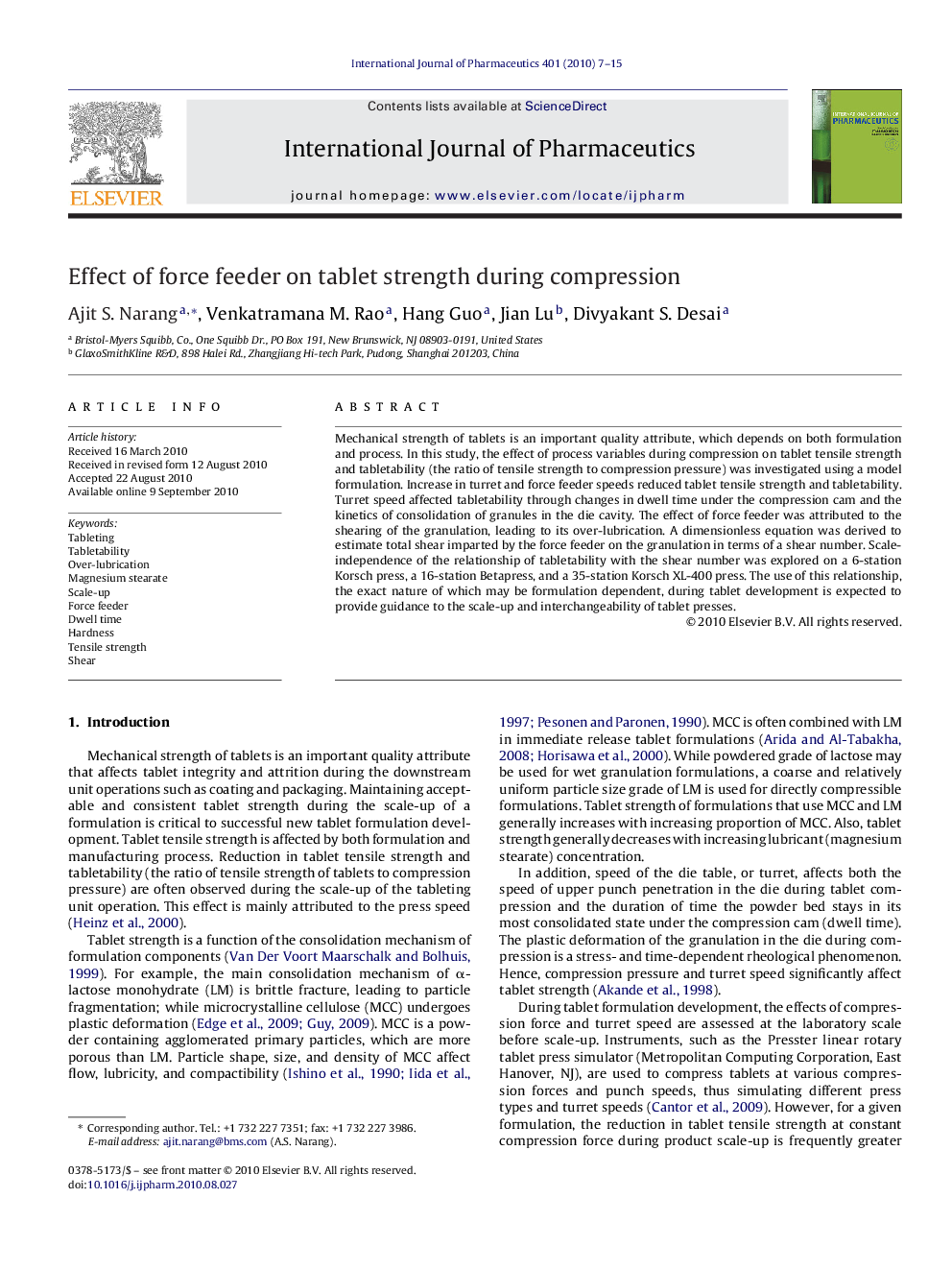| Article ID | Journal | Published Year | Pages | File Type |
|---|---|---|---|---|
| 2503669 | International Journal of Pharmaceutics | 2010 | 9 Pages |
Mechanical strength of tablets is an important quality attribute, which depends on both formulation and process. In this study, the effect of process variables during compression on tablet tensile strength and tabletability (the ratio of tensile strength to compression pressure) was investigated using a model formulation. Increase in turret and force feeder speeds reduced tablet tensile strength and tabletability. Turret speed affected tabletability through changes in dwell time under the compression cam and the kinetics of consolidation of granules in the die cavity. The effect of force feeder was attributed to the shearing of the granulation, leading to its over-lubrication. A dimensionless equation was derived to estimate total shear imparted by the force feeder on the granulation in terms of a shear number. Scale-independence of the relationship of tabletability with the shear number was explored on a 6-station Korsch press, a 16-station Betapress, and a 35-station Korsch XL-400 press. The use of this relationship, the exact nature of which may be formulation dependent, during tablet development is expected to provide guidance to the scale-up and interchangeability of tablet presses.
